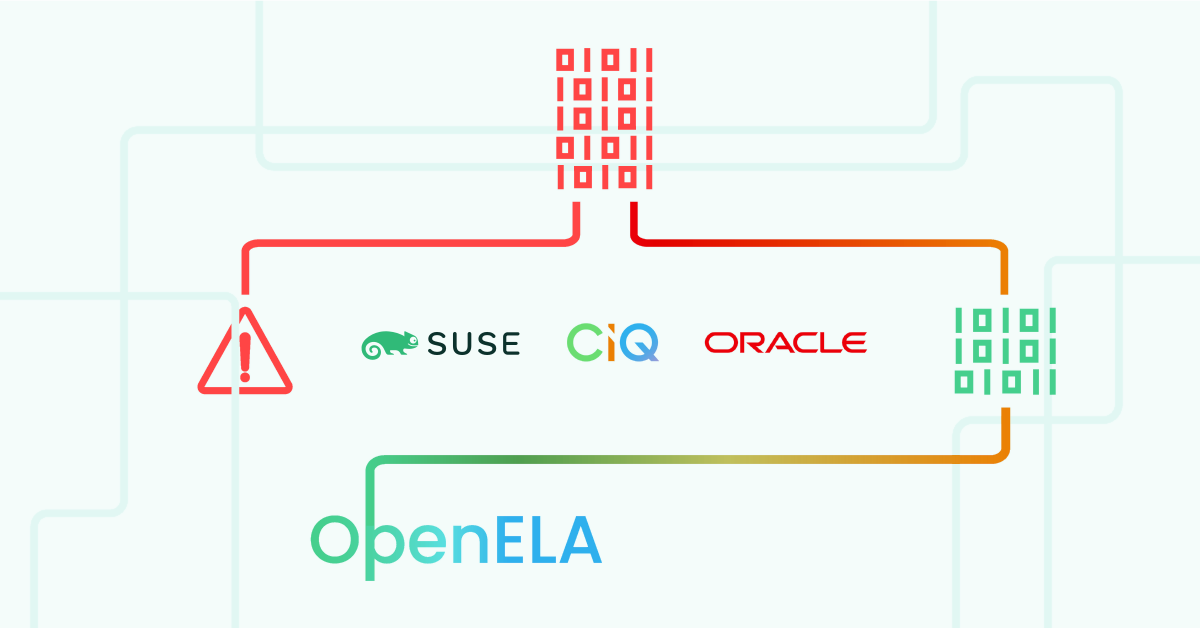
Oracle, SUSE and CIQ launch the Open Enterprise Linux Association amid Red Hat controversy
The fallout from Red Hat’s recent decision to make it harder to access the source code of its flagship Red Hat Enterprise Linux (RHEL) distribution continues. A number of Linux distributions, including Alma Linux, Rocky Linux and Oracle Linux, based their distributions on RHEL. When Red Hat cut off the standard ways they used to get the source code for their distributions, SUSE quickly jumped into the breach with a RHEL fork.
Today, Oracle, SUSE and CIQ (the commercial entity behind Rocky Linux) are launching a more formal pact in the form of the Open Enterprise Linux Association (OpenELA), which describes itself as a “community repository for enterprise Linux sources.” In the context of the Red Hat saga, OpenELA’s tagline says a lot: “No subscriptions. No passwords. No barriers. Freeloaders welcome.”

Image Credits: SUSE
The association’s stated mission is to encourage the development of RHEL-compatible distributions by providing open and free Enterprise Linux source code, starting later this year with the sources necessary to build RHEL 8 and 9. Support for RHEL 7 is currently being listed as “possibly.”
“Collaboration is critical to fostering innovation, which is why we welcome everyone to be part of this association and help us uphold open community standards,” said Thomas Di Giacomo, chief technology and product officer of SUSE. “SUSE is a strong believer in making choice happen. Together with the open source community we will redefine what it truly means to be open and deliver a stronger future for EL.”
Red Hat’s decision left a vacuum in the Linux distribution space and SUSE, as one of the largest commercial Linux entities besides Red Hat, seems to be more than willing to fill it. Oracle’s association with this project may be a bit more of a surprise — and its reputation in the open-source ecosystem remains tarnished — but the company has long based its Oracle Linux distribution on Red Hat, and the Oracle Cloud essentially runs on it. Unlike some other companies, though, Oracle Linux offers support for what it calls the ‘Red Hat Compatible Kernel’ and the ‘Unbreakable Enterprise Kernel’ with its own enhancements.
It’s also worth noting that SUSE’s existing portfolio of Linux distributions won’t change because of this move.
“We will, of course, stay fully committed to our own Linux portfolio as well as to our openSUSE Linux distributions,” wrote Vojtěch Pavlík, SUSE’s GM for business-critical Linux, in a separate blog post today. “With our introduction of Liberty Linux last year, which provides support to former CentOS users and provides a migration path to many other distributions, we set the stage by supporting customers regardless of the distribution they are using, leading to more diversity and openness in the communities.”
The founding companies note that they invite other organizations and community members to join the new Linux foundation association.


